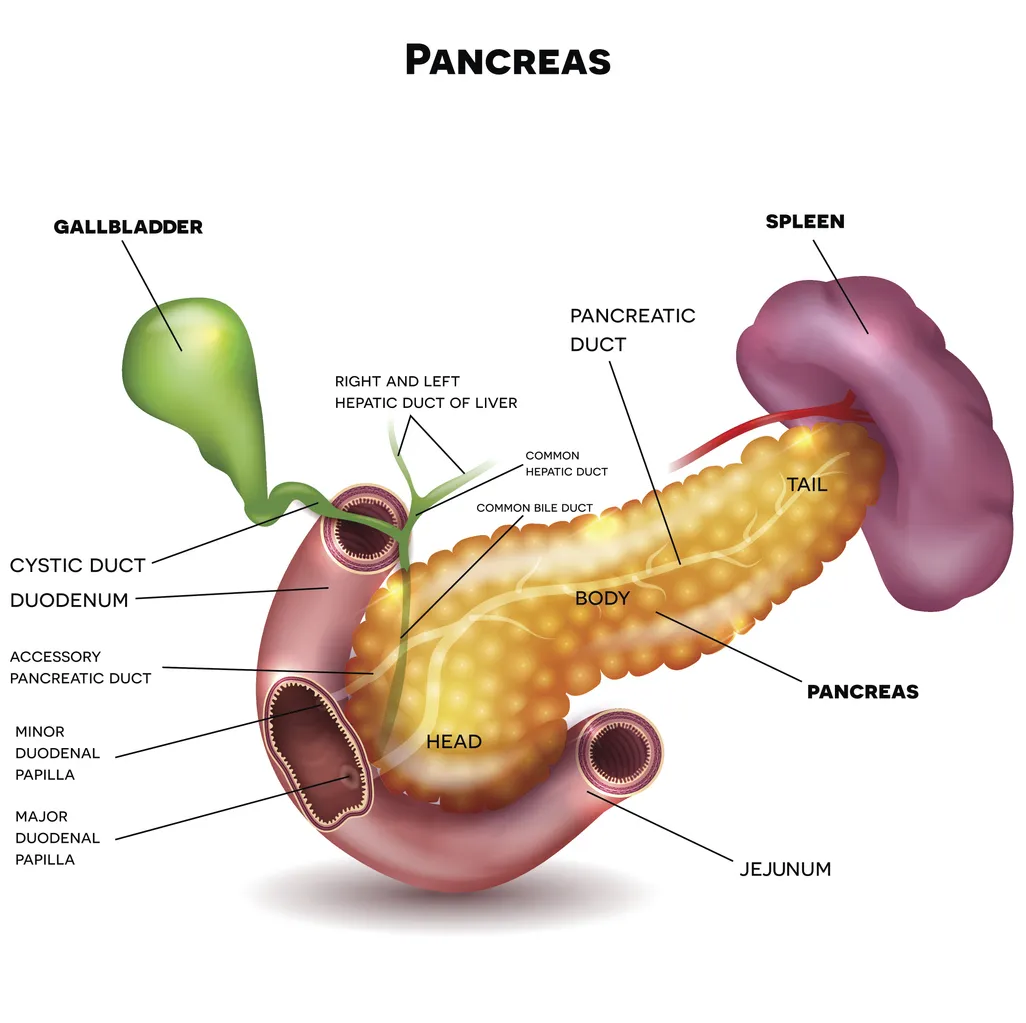Exocrin Pancreatic Insufficiency

What causes pancreatic insufficiency?
EPI (Exocrine Pancreatic Insufficiency) results from a deficiency in exocrine pancreatic enzymes (lipases, proteases, amylases), leading to the inability to properly digest food.
EPI can be caused by various diseases, including Crohn’s disease, pancreatic cancer, chronic pancreatitis (due to alcoholism or certain forms of diabetes), small intestine disorders, and cystic fibrosis.
Current treatment involves the oral administration of pancreatic enzyme replacement therapy.
Why are existing therapies insufficient?
Native pancreatic enzymes, which are highly sensitive to acidic conditions (pH < 5), are degraded as they pass through the stomach. The protective coating technique used in current formulations results in a very slow release of the active compounds — a major limitation, as enzymes must be released immediately after gastric transit, in the duodenum, to be effective.

This delayed release renders approximately 70% of current treatments inadequate.
The average daily dose for young adults is around 23 capsules, a consequence of the enzymes’ low bioavailability, which in turn leads to overdosage.

Our mission
Eneapharm is developing a next-generation enzyme formulation based on a very innovative technology that overcomes the limitations of current therapies by enabling targeted enzyme activation in the duodenum, effectively restoring digestive absorption and improving patient outcomes.
Pipeline
